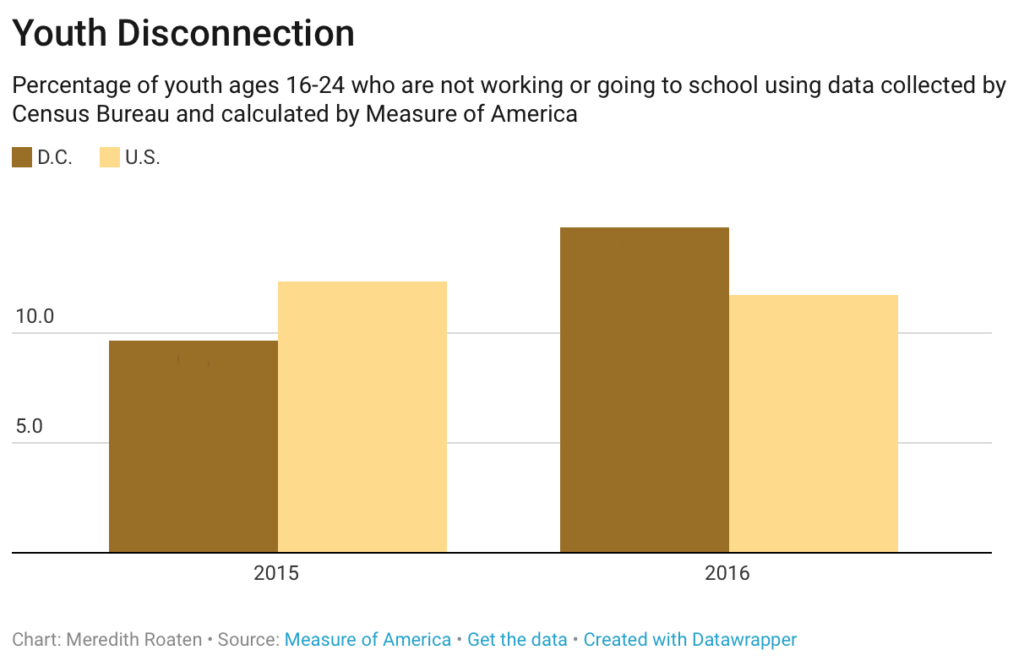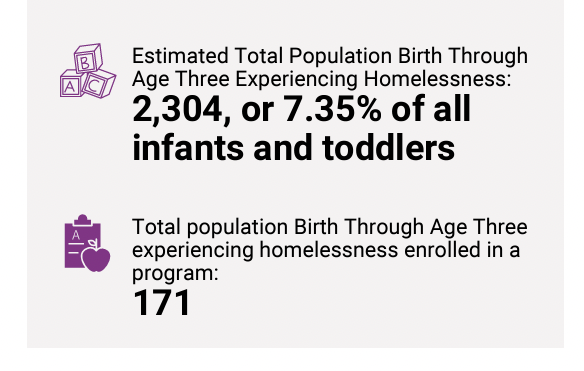D.C. Central Kitchen, a culinary training program for unemployed adults founded in 1989, is partnering with Building Bridges across the River at THEARC to bring new services to THEARC’s Ward 8 campus, including a workforce development for youth age 18-25.
The nonprofit’s core training program has typically enrolled people aged 35-50, according to D.C. Central Kitchen’s chief development officer, Alexander Moore. The most recent annual report cited an 87 percent success rate for placing trainees in a job in 2017. Moore said the expansion was considered when data revealed D.C.’s youth are increasingly at risk of being left out of the local economy.
[Read more: Suspected homeless youth crisis prompts census]
More than 14.8 percent of D.C. youth are “disconnected,” from a job or school enrollment, which is above the national average, according to a 2018 “Measure of America” report. Thirty-eight states improved their rates of disconnection while Nebraska and D.C. were the only areas where the percentage increased during an 8-year time period. The District’s rate increased by more than 50 percent.
Workforce training can help young people avoid serious long-term consequences by giving them job opportunities, according to Moore.
D.C. Central Kitchen announced its expansion in May and is organizing focus groups to identify the schedules and learning strategies that will work best for young people.
“This is not going to be a top-down, cookie-cutter approach,” he said.
[Read more: New plan for D.C. homeless youth]
Twenty-eight percent of the more than 1,100 homeless young people in D.C. attributed their homelessness to economic factors, including job loss, when responding to a survey last year. The survey was conducted by the D.C. Department of Human Services for the second year in a row. Eighty-two percent of respondents said they were seeking employment, and almost all said their biggest need was job training and work readiness programs.
Sarah Burd Sharps, a co-director of Measure of America, said being disconnected from work and education leaves lasting “scars” on young people and a negative impact on the community, including higher instances of crime and lower home ownership. Disconnectedness in youth occurs at a fragile point in development, when young people need to feel optimistic about their futures.
“People who don’t experience that kind of independence, agency and optimism, often find a lot of doors closed for them,” Sharps said.
The local increase in disconnectedness comes from a combination of low eighth grade reading levels, high youth unemployment and child poverty, according to Measure of America’s research. Sharps said workforce training is one part of the strategy to alleviate the disconnectedness. Paying young people and supporting them for an extended period of time addresses issues that lead them to drop out of work or school in the first place.
Workforce training is only helpful if it links people to paid work at the end, according to Sharps. She criticized programs that stay in touch with trainees but do not connect them to work.
The culinary program is well known throughout the city and works well with the collaborative nature of other nonprofits on the THEARC campus, according to Executive Director Rahsaan Bernard. Because D.C. Central Kitchen already provides food for some of THEARC’s services, Bernard said opening a location on the campus is a natural fit.
The new space will include a kitchen for the trainees as well as a café to serve the people who work and volunteer at the THEARC. D.C. Central Kitchen will offer young people across the city another life development choice alongside THEARC’s associate’s degree program and technical theatre internship program.
“This is adding to those services, adult services, that will lead them to sustainable jobs,” Bernard said.
The collaborative body of work for D.C. is cataloged at https://dchomelesscrisis.press.









